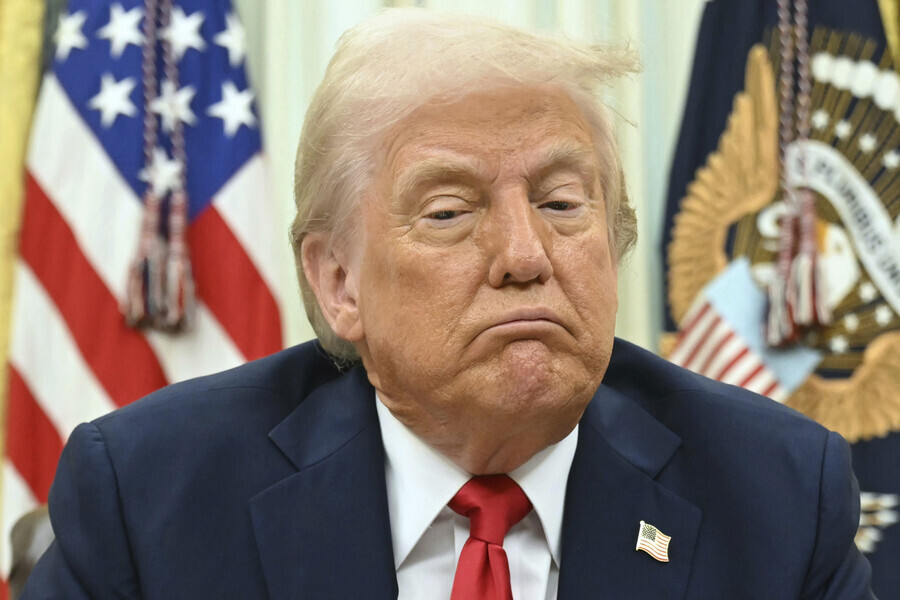
Singapore, April 5, 2025 - Global markets are once again experiencing significant turbulence following an announcement that has sent ripples of unease through the international economic landscape. The renewed prospect of widespread tariffs, spearheaded by the proposal of a 10% levy on all imports, with potentially higher tariffs on specific nations, has ignited fears of a looming global trade war. This time, no country appears to be exempt from the potential fallout.
Singapore's stock market reacted swiftly to the news. The Straits Times Index (SGX: ^STI) plunged by a notable 3% in a single day, underscoring the anxieties gripping investors. Across the Pacific, over $5 trillion in value evaporated from the U.S. markets, signaling the profound impact of the anticipated policy shift.
While the apprehension surrounding a new era of global trade friction is understandable, it is crucial for investors to maintain a broader perspective before making any impulsive decisions.
Singapore's Exposure to Trade Tensions
Singapore's economy stands as one of the most open globally. In 2023, the city-state's total trade volume exceeded three times its Gross Domestic Product (GDP), highlighting its deep reliance on global flows. From electronics firms like Venture Corporation (SGX: V03) to industrial players such as Yangzijiang Shipbuilding (SGX: BX8), numerous companies listed on the Singapore Exchange are intrinsically linked to exports or form integral parts of international supply chains. On Friday alone, shares of Yangzijiang Shipbuilding witnessed a near 4% decline.
Prime Minister Lawrence Wong has previously cautioned that Singapore could face a more pronounced impact than other nations should the U.S. tariffs trigger a broad economic downturn. Export-oriented businesses are already reassessing their supply chain strategies and exploring market diversification to mitigate potential risks.
Objectivity Amidst Market Volatility
While the current sell-off may feel unsettling, historical context offers valuable insights:
Short-term Volatility is Normal: Markets often exhibit an exaggerated reaction to geopolitical shocks before stabilizing.
Precedent Exists: During the U.S.-China trade tensions of 2018-2019, the STI experienced similar volatility but ultimately rebounded.
Strong Firms Adapt: Businesses with resilient models and robust leadership typically find ways to navigate external disruptions.
What Should Investors Do Now?
For long-term investors, the most effective strategy remains a disciplined, fundamentals-focused approach. Here's how to maintain composure:
Resist Panic Selling: Emotional decisions rarely yield positive outcomes. Selling during a downturn often locks in losses and misses subsequent recovery opportunities. Instead, investors should revisit their investment goals and time horizons. If these remain unchanged, the investment plan likely does not require alteration.
Review Portfolio Trade Exposure: Not all companies face equal exposure to tariffs. Investors should assess their portfolios by considering the following questions:Which companies in my portfolio heavily rely on exports to the U.S. or Europe?
What portion of my portfolio is invested in sectors directly impacted, such as semiconductors, industrial equipment, or logistics?
Do I hold companies with diversified revenue streams across multiple markets, such as Keppel DC REIT (SGX: AJBU) or DBS Group (SGX: D05)? Understanding the portfolio's exposure allows for informed decision-making rather than emotional reactions.
Focus on Resilient Businesses: Identify companies with:Strong cash flow and low debt ratios.
The ability to pass on increased costs to consumers.
Diversified operations and recurring revenue streams.
Products or services with consistent demand.
Consider Domestic or Regional Plays: Some Singapore-listed companies primarily focus on the local or ASEAN markets, exhibiting less direct exposure to U.S. tariff risks. Examples include:CapitaLand Integrated Commercial Trust (CICT) (SGX: C38U) – focused on Singapore retail malls and offices.
UOB (SGX: U11) – a bank with a strong regional presence but limited direct trade exposure. These companies may offer greater stability during trade-driven volatility.
Maintain a Long-Term Perspective: While tariffs can change and political administrations may shift, investment horizons can span decades. History demonstrates that staying invested, reinvesting dividends, and disregarding short-term noise generally rewards patient investors.
Opportunity Amidst Uncertainty
Periods of fear can also present moments of opportunity:
Quality Stocks at a Discount: Blue-chip companies like OCBC (SGX: O39) or Singapore Exchange (SGX: S68) may trade at more attractive valuations.
Stable Dividend Payers: Many REITs, such as Mapletree Logistics Trust (SGX: M44U), can provide consistent income even during economic headwinds.
Defensive Sectors: Essential consumer goods, utilities, and telecommunications tend to perform steadily regardless of economic shocks.
While predicting the market's next move remains impossible, focusing on patience, maintaining a long-term view, and understanding the businesses held or considered for investment are paramount during such times.
The resurgence of potential broad tariffs has undoubtedly unsettled markets. However, the strategy for long-term investors remains steadfast. It is crucial not to let headlines dictate investment plans.
[Copyright (c) Global Economic Times. All Rights Reserved.]






























